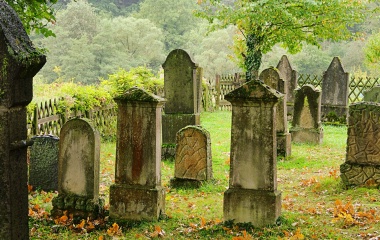
Even those far from observance know that the reason we eat matzah is that we left Egypt in too much of a hurry to bake the bread. “And they baked the dough that they took from Egypt into matzah cakes, and it had not risen. They were expelled from Egypt and they could not wait; and also, they had not prepared other provisions” (12:39). This idea is reinforced every year at the seder, where we declare “Matzah (that we eat), for what purpose? Because they did not have enough time for the dough to rise.” As anyone who has witnessed the baking of matzah knows, the operative word is speed.
Yet, as is often the case with our basic assumptions, the complete picture is somewhat more complex. “You shall eat the meat on that night, broiled; with matzah and marror you shall eat it” (12:8). A full two weeks before the Exodus, Moshe prepared the people, giving them a series of instructions (mitzvoth) to ensure the viability of the Exodus. The main highlight is the slaughtering and consumption of the Pascal lamb. This delicacy had to be eaten with the reminders of slavery, that of matzah and marror. And a mere four verses later, the Torah tells us that it is not enough to eat matzah just on the night of the seder; but “seven days you shall eat matzah”.
It sure seems as if the command to eat matzah is independent of how we left Egypt, and predates the Exodus by at least two weeks. While it is possible to explain that G-d commanded this based on His knowledge of what would happen, the simple reading of the verses gives no indication of such. Even if that is so, we are left wondering. Why give the command now if it is meant as a result of some future event?
The matzah we eat actually seems to have a dual (and contradictory) message. “This is the food of slavery that our ancestors ate in Egypt”. Tasteless and filling, economical to produce and easy to store, it is the ideal food for a slave. While lacking the bitterness of marror—a food they likely did not actually eat in Egypt—matzah reminds us of our years of slavery. It serves to ensure we don’t get carried away eating barbequed lamb chops, and forget the years of hardship. That, in turn, must remind us not to oppress the stranger, “for you were strangers in the land of Egypt”.
Yet matzah is also the food of redemption and freedom, and today, it is the central feature of our most elaborate and joyous meal of the year. “Matzah—because our ancestors were redeemed from Egypt” (Mishnah Pesachim 10:4).
“And the Jewish people travelled from Rameses to Sukkot”, and baked the dough they had brought of Egypt for their first taste of the matzah of freedom. It was with this food that the Exodus was complete, and that meal marked the end of “the lifestyle that the Israelis endured in Egypt for 430 years”. This special night on which we celebrate with matzah is a permanent leil shimurim, a night of protection for the Jewish people.
We are no longer slaves to Pharaoh; we’ve replaced that with joyous servitude to G-d, the greatest freedom man can have. We are not beholden to flesh and blood, but only to the Divine Creator, who created all in His image. We are “slaves” to a G-d Who demands human dignity for all, Who demands that the stranger be protected, Who declares, “One system of justice shall be for you”.
The matzah of freedom and the matzah of redemption may have the same ingredients and a similar taste. But in essence, they could not be more different from one another. The matzah that we were forced to eat in Egypt is now eaten by choice.
Matzah reminds us of both slavery and freedom. We can only appreciate the latter if we still recall the former. We were given two weeks’ notice of the impending Exodus, with the command that we commemorate it by eating matzah. We must never forget what it is like to suffer as slaves. We must ensure that all have freedom. We must convert the matzah of slavery to that of freedom.



